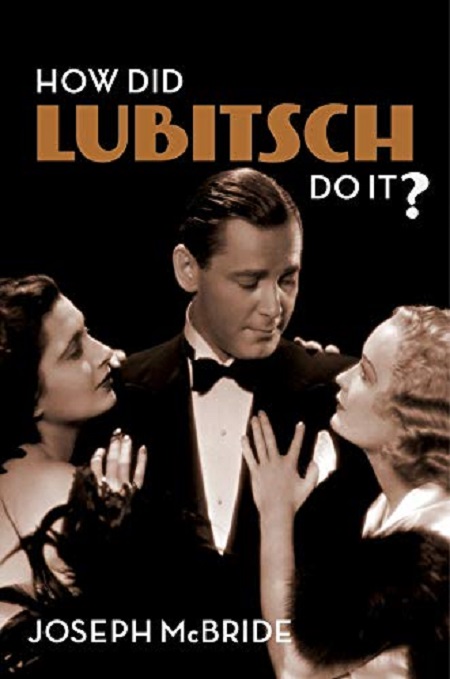How Did Lubitsch Do It? | Joseph McBride

Detalii How Did Lubitsch Do It?
carturesti.ro
128 Lei
Carte straina
Columbia University Press
How Did Lubitsch Do It? - Disponibil la carturesti.ro
Pe YEO găsești How Did Lubitsch Do It? de la Columbia University Press, în categoria Carte straina.
Indiferent de nevoile tale, How Did Lubitsch Do It? | Joseph McBride din categoria Carte straina îți poate aduce un echilibru perfect între calitate și preț, cu avantaje practice și moderne.
Caracteristici și Avantaje ale produsului How Did Lubitsch Do It?
- Departament: gaming-carti-birotica
- Ideal pentru pasionații de jocuri, birotică și distracție online.
Preț: 128 Lei
Caracteristicile produsului How Did Lubitsch Do It?
- Brand: Columbia University Press
- Categoria: Carte straina
- Magazin: carturesti.ro
- Ultima actualizare: 27-10-2025 01:24:43
Comandă How Did Lubitsch Do It? Online, Simplu și Rapid
Prin intermediul platformei YEO, poți comanda How Did Lubitsch Do It? de la carturesti.ro rapid și în siguranță. Bucură-te de o experiență de cumpărături online optimizată și descoperă cele mai bune oferte actualizate constant.
Descriere magazin:
Orson Welles called Ernst Lubitsch (1892-1947) "a giant" whose "talent and originality are stupefying." Jean Renoir said, "He invented the modern Hollywood." Celebrated for his distinct style and credited with inventing the classic genre of the Hollywood romantic comedy and helping to create the musical, Lubitsch won the admiration of his fellow directors, including Alfred Hitchcock and Billy Wilder, whose office featured a sign on the wall asking, "How would Lubitsch do it?" Despite the high esteem in which Lubitsch is held, as well as his unique status as a leading filmmaker in both Germany and the United States, today he seldom receives the critical attention accorded other major directors of his era. How Did Lubitsch Do It? restores Lubitsch to his former stature in the world of cinema. Joseph McBride analyzes Lubitsch\'s films in rich detail in the first in-depth critical study to consider the full scope of his work and its evolution in both his native and adopted lands. McBride explains the "Lubitsch Touch" and shows how the director challenged American attitudes toward romance and sex. Expressed obliquely, through sly innuendo, Lubitsch\'s risque, sophisticated, continental humor engaged the viewer\'s intelligence while circumventing the strictures of censorship in such masterworks as The Marriage Circle, Trouble in Paradise, Design for Living, Ninotchka, The Shop Around the Corner, and To Be or Not to Be. McBride\'s analysis of these films brings to life Lubitsch\'s wit and inventiveness and offers revealing insights into his working methods.

Produse asemănătoare
Produse marca Columbia University Press

Zhuangzi. A New Translation of the Sayings of Master Zhuang as Interpreted by Guo Xiang, Paperback/***
![]() elefant.ro
elefant.ro
Actualizat in 28/10/2025
216.99 Lei

Black Sun. Depression and Melancholia, Paperback/Julia Kristeva
![]() elefant.ro
elefant.ro
Actualizat in 28/10/2025
144.99 Lei

Varieties of Temporal Experience. Travels in Philosophical, Historical, and Ethnographic Time, Hardback/Professor Michael D. Jackson
![]() elefant.ro
elefant.ro
Actualizat in 28/10/2025
634.99 Lei

Let There Be Light. How Electricity Made Modern Hong Kong, Paperback/Mark (Asia Business Council) Clifford
![]() elefant.ro
elefant.ro
Actualizat in 28/10/2025
216.99 Lei

On the Prowl: In Search of Big Cat Origins, Hardcover/Mark Hallett
![]() elefant.ro
elefant.ro
Actualizat in 28/10/2025
216.99 Lei

The Savage Detectives Reread, Paperback/David Kurnick
![]() elefant.ro
elefant.ro
Actualizat in 28/10/2025
122.99 Lei